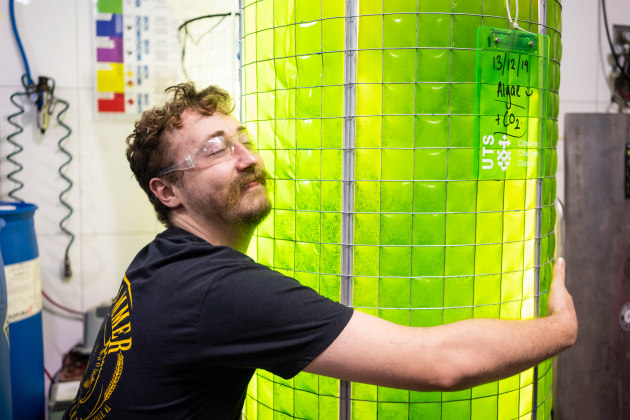An algae bioreactor could make brewing a more carbon neutral process, with Sydney-based brewery Young Henrys teaming up with the University of Technology Sydney Climate Change Cluster (C3) to install a tank at its site.
Research into algae has found its photosynthesis effectiveness is so strong, it produces more than 50 per cent of the world’s oxygen. As CO2 is a byproduct of the brewing process, the research at Young Henrys has proved that using algae to consume CO2 and release oxygen can help minimise the carbon footprint.
The glowing bioreactors contain around five million microalgae cells per millilitre, with the algae that is grown from absorbing all the CO2 having the potential to be used in other products, such as food or bio-plastics.

“We were inspired by the work the C3 group were doing and wanted to get involved,” said Young Henrys co-founder Richard Adamson.
“Some of the skills we have as brewers managing yeast have an analogue in growing algae – it’s almost like they have an inverse relationship. We thought it would be worth exploring how microalgae could work in a brewing operation to lower our carbon footprint and produce real world solutions.”
The CO2 from the fermentation of one six-pack of beer takes a tree two days to absorb. With the installation of the 400-litre bioreactor at Young Henrys, it can produce an equivalent amount of oxygen as one hectare of Australian forest.
C3 executive director professor Peter Ralph said the Young Henrys is the type of company taking leadership in the sustainability space.
“This partnership between UTS Climate Change Cluster (C3) and an industry leader allows us to showcase that it is possible to have action today on climate change,” said Ralph.
“This project really showcases how research together with industry, can create practical and innovative solutions to address global problems today.”
This is the first phase of the partnership between UTS and Young Henrys, which is partly funded by an Innovation and Connections government grant.








